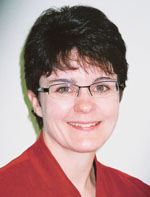August 31, 2010
Noise Induced Hearing Loss

By Dr. Molly Parker
Audiologist
Don White Hearing Aid Center
“I went to a concert Saturday night and this ringing just won’t stop. This has happened before, but it always got better after a couple of days.”
“I suddenly noticed this loud ringing noise the other day. It sounds like locusts and just won’t go away. I use my MP3 player and cell phone every day. Can anything help?”
“I went hunting and my left ear now sounds muffled and plugged up. What can I do?”
These are the symptoms I hear when I suspect permanent noise induced hearing loss.
Noise induced hearing loss (NIHL) is caused by prolonged noise exposure and is very preventable. NIHL occurs from being around a single loud noise (e.g. an explosion) or from being around loud noise over a long time (e.g. machinery). Limiting noise exposure or at least protecting your hearing consistently at a young will reduce your chances of getting hearing aids later in life. The effects of hearing loss are often not noticeable the first five to ten years of exposure but the damage from the noise exposure is comprehensive over time. For example, the noise exposure from shooting guns when you are 20 years old will contribute towards your hearing loss when your hearing is tested at age 70.
Hearing loss is very gradual and causes no pain. Typically others notice your hearing loss long before you. Hearing loss is often evident when you begin to look at others more than listen to them, or you frequently ask for repetition and respond inappropriately to questions or comments. It is easy to ignore the symptoms when you are in your 20’s but by the time symptoms worsen, the hearing loss is permanent. Hearing aids are the only treatment for the hearing loss; the damage that occurs is not correctable with medical practice.
More teenagers have hearing loss than ever before, presumably because of urban habits— prolonged exposure to MP3 players, concerts, and school dances. However, adults are not blameless in protection of their hearing: racing, hunting, power tools, and work affect hearing just as much as teenagers. Later in life, many seniors assume that it is too late to protect their hearing and do not use hearing protection. Noise exposure is damaging no matter what stage in life you are in, and we all need to take steps to avoid more hearing loss.
It is never too late to begin to protect your hearing. Foam and silicone plugs are available at little to no cost. “Ear muff” style headphones work well for kids and adults and are found at hardware stores. For a little more investment, there are custom filtered noise plugs, musician plugs, motorcycle plugs, sleeping plugs and swim plugs.
Filed Under: Health & Wellness
Tags: Audiologist, Couple Of Days, Don White, Explosion, Hearing Aid Center, Hearing Aids, Left Ear, Locusts, Loud Noise, Medical Practice, Molly Parker, Mp3 Player, Nihl, Noise Exposure, Noise Induced Hearing Loss, Prolonged Exposure, Repetition, Saturday Night, School Dances, Time Symptoms
Trackback URL: https://www.50pluslife.com/2010/08/31/noise-induced-hearing-loss/trackback/


